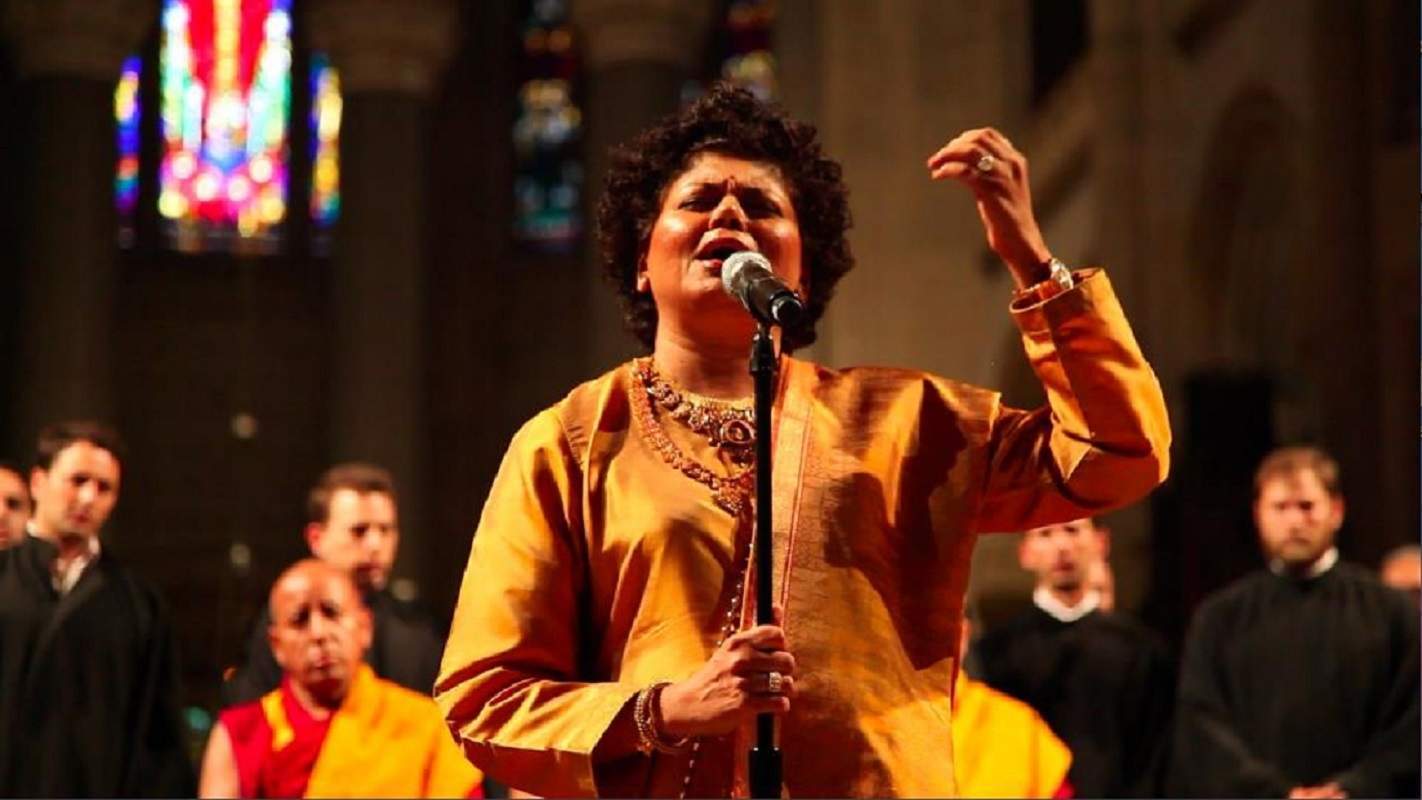
What form does the mid-life meltdown of the average highpowered Manhattan businessperson take? An Ironman triathlon, perhaps. A spree of chainsaw murders. Or a 90-minute symphonic album recorded with five choirs in four countries, and promoted in the UK by the team who do press for Guns N’ Roses.
Chandrika Tandon, 63, is one of the most powerful management consultants in New York. She once saved a crashed bank which was sold for $61. During the financial crisis, she was the queen of the corporate restructure. It was the easiest time, she tells me, because for once she had no choice but to turn work down. She’d worked in Japan and war-torn Beirut. When it all got too much she took time out, and read 2,000 books for answers, from Eckhart Tolle to Buddha. She decided they all said the same thing. She puts it this way: “We are radiant beings, wrapped in bandages.” It was time to call the Indian masters, and learn to compose…
Tandon was born in Madras and arrived in the US in 1979, the first woman without an American college degree to be hired by management consultancy McKinsey. She set foot in the New York winter in a saree and open-toed sandals.
As one of McKinsey’s first female partners, she stepped up: John Molloy’s Dress For Success told her bow ties were in, so that’s what she wore, with a thick, brown woollen suit and a four-dollar shirt (because she still thought in rupees). McKinsey gave you $5,000 when you started – she spent half of it on a stereo system and $1,800 on a Martin guitar. She’d shipped her vast vinyl collection over from India: all the western stuff that had broken through there, from King Crimson to Roberta Flack. She loved the Irish singalongs at O’Flanagan’s on 1st Ave.
Music and corporate restructuring are not such odd bedfellows. Tandon, a “Type A perfectionist” with a mathematical brain, was driven by an obsession with results. When she decided to train her voice, she set off at 3.30am every Saturday for lessons in Connecticut, arriving back home before her baby daughter woke up. She identified the gurus of raga music, and flew to India for ten days at a time to immerse herself in the rules of its mindboggling melodic modes.
“Do-do-DO-do-do,” she sings to me, in a posh Chinese restaurant. More chat, over Michelin-starred mushrooms, of quarter-tones and micro-tones. I’d heard this about Indian music, which changed the life of jazz musicians such as John McLaughlin – the mindbending possibilities of all those scales (so many notes to pick from) and the enlightened pursuit of The Note, which when “found” feels like hitting a resonant frequency between your lungs and the cosmos. How could a western jazzer ever go back from that? How could a stressed-out management consultant ever go back?
Money and music go well together, too. After her time with the Indian masters (back in her home country, she’d rent one house for them, one for herself, and one in between for lessons) Tandon set up a record label. Three albums followed (and a Grammy nomination) but nothing on the scale of the new one, Shivoham – The Quest, which is a bit like a rock opera, incorporating western classical strings, Gregorian chant, Irish folk song and, on one track, the rhythms of Jesus Christ Superstar. She recorded large chunks in Abbey Road. The choir sang one phrase a bit fuzzy – so she hired another choir in New York just to tape the line again. The drive behind the project – which cost a fortune to make, and won’t make a fortune back – is a spiritual one. Tandon wants everyone who hears it to lose their bandages, too.
Nowadays, she sits on boards at NYU, Yale, Berklee and the Lincoln Centre. She still travels a lot, but she has 10,064 songs on her iPod and a pair of noise-cancelling headphones. If batteries fail and she can’t access the exact Mary Hopkins track she wants, four hours across the Indian Ocean, it is a bad day. But she has two powerpacks in her handbag, to prevent such a mishap.
Shivoham – The Quest is released on 24 November through Soul Chants Music
This article appears in the 25 Oct 2017 issue of the New Statesman, Poor Britannia





